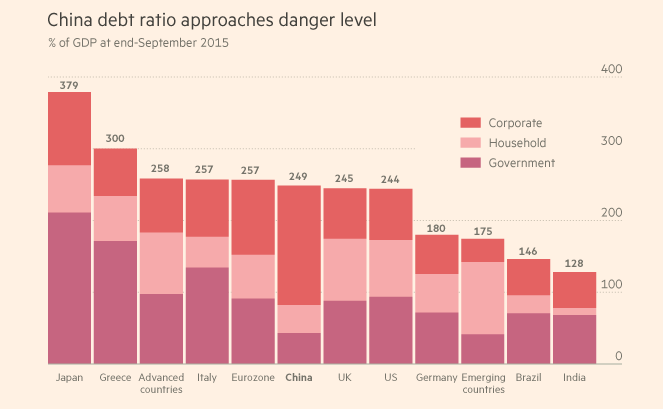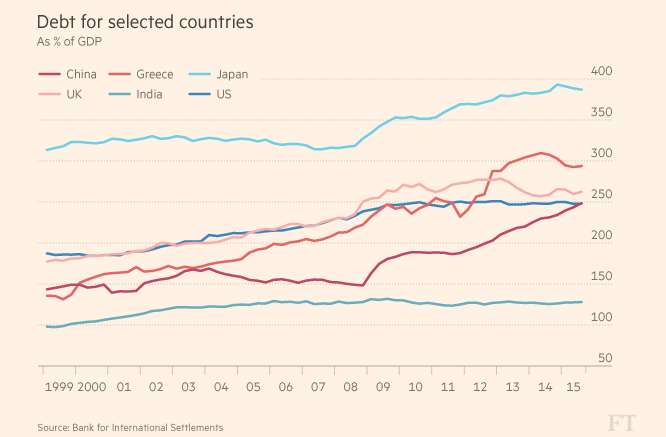It’s been a decade since the U.S. experienced an epic housing bubble and banking crisis, a seismic event that rattled markets and economies around the world.
Is China next? Some analysts are worried it might be.

In the wake of 2008 crisis, Beijing financial authorities unleashed eased monetary policy and pumped massive amounts of credit into the economy.
As a result China’s total government, corporate and household debt is about 249% of gross domestic product or roughly $30 trillion.

Danger Zone
That’s slightly above the U.S. and on par with the debt burden average of advanced countries. In my view, the trouble is that China is still a developing economy with a per capita GDP of about $9,000.
President Xi Jinping’s government has been trying to lower debt levels, particularly in the corporate sector where big-spending conglomerates like the HNA Group and Anbang Insurance have been on global shopping sprees.
Tapping Brakes
Beijing has also been trying to cool overheated housing markets in coastal cities like Beijing, Shanghai and Shenzhen.
In my opinion, the trouble is that, whenever the economy shows signs of slowing too dramatically, the government eases up on credit controls and the debt dynamics turn ugly.

Wealth Products
I think a third worry is the popularity of high-yielding wealth management products by Chinese financial firms, which could run into trouble now that corporate defaults are rising.
Jonathan Anderson, principal at Emerging Advisors Group, recently told the Financial Times that “it is only a matter of time before some banks find themselves unable to fund all their assets safely,” Mr Anderson wrote last month. “And at that point, a financial crisis is likely.”
Takeaway
In my opinion, history has shown that few economies experience the kind of credit bubble China has without experiencing financial turmoil of some sort.
Let’s hope the next financial crisis isn’t in China.
Remember it’s the world’s second biggest economy.
Photo Credit: hj_west via Flickr Creative Commons



